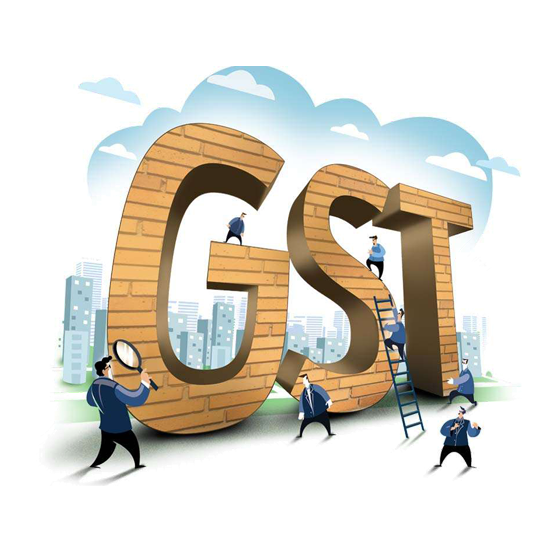- Business Startup
- Startup-Indian Entities
- Startup-Foreign Entities
- Business/Entity Conversion
- Business Registration
- Tax & ROC
- Yearly Tax Compliances
- Income Tax Return Filing
- ITR for Salaried Individuals/ Pensioner
- ITR for Capital Gain
- ITR for Companies
- ITR for House Property Income
- ITR for Income from Business
- ITR for Individuals having Share Trading
- ITR for NRIs and Resident with Foreign Income
- ITR for Partnership Firm/AOP/BOI
- ITR for Presumptive Income
- ITR for Speculation Business
- ITR for Trust, NGO and Companies
- Advisory on Tax Savings
- TDS Return Filings
- LTCG Filing and Advisory
- Income tax Notice Compliance
- Basic
- Standard
- Premium
- ITR for House Property Income and Other Source Income
- ITR for Capital Gain
- ITR for NRIs and Resident with Foreign Income
- ITR for Individuals having Share Trading or Casual Income
- ITR for Speculation Business
- ITR for Income from Business and Profession
- ITR for Presumptive Income
- ITR for Partnership Firm/AOP/BOI
- ITR for Companies
- ITR for Trust, NGO
- Advisory on Tax Savings
Yearly Tax Compliances
ITR for Salaried Individuals/ Pensioner
Income Tax Return Filing
- GST
- GST Registration (₹799)
- GST Accounting
- GST Return Filing
- GST Annual Return
- GST LUT Submission
- GST Taxpayer Registration
- GST Registration for Foreign Entity
- GST Registration Cancellation
- GST-Revocation of Cancellation
- GST Return Filing Packages
- E-way Bill Submission
- Ask an Expert-GST
GST Registration & Cancellation
- IPR
- Trademark
- Trademark Registration (₹5799)*
- Trademark (Individual) Registration
- Trademark with Logo Designers (Individual)
- Trademark with Logo Designers (Company)
- Trademark Objection Management
- Trademark Renewal
- Trademark Renewal (Company)
- MSME Compliance Trademark Registration
- Trademark Restoration
- Trademark Assignment
- Trademark Hearing
- Trademark Opposition
- Trademark Infringement
- Trademark Investigation
- Trademark Logo
- Copyright
- Copyright Registration
- Copyright Objection
- Computer Software Copyright
- Logo Copyright for Goods
- Songs Copyright
- Sound Recording Copyright
- Logo Copyright for Service
- Artistic Work/Painting Copyright
- Cinematography Copyright
- Copyright a Book
- Literature/Dramatic Copyright
- Music Notation Copyright
- Phrase/Slogan Copyright
- Symbol Copyright
- Patent
- Design
Trademark
- Trademark
- Compliance
- LLP Annual Compliance
- Winding up of Inactive LLP
- LLP Winding up by NCLT
Initial Compliance
General LLP Compliance
Changes in company
LLP Annual Compliance/ Closure
- Pay Roll
- Company
- Blog
Goods and Service Tax
GST Registration for Foreign Entity
GST Registration for Foreign Entity
- Overview
- Points to remember
- Process
GST Registration for Foreign Entity
Goods and Services Tax or GST has been implemented in India from 1st July, 2017 and non-resident taxpayers are also required to obtain GST registration and file GST returns. Foreign non-resident taxpayers are mandatorily required to obtain GST registration in India if they supply goods or services to residents in India. According to the GST Act, “non-resident taxable person” means any person who occasionally undertakes transactions involving supply of goods or services or both, whether as principal or agent or in any other capacity, but who has no fixed place of business or residence in India. Further, all non-resident taxable persons are required to appoint an authorized person in India for the purpose of complying with GST regulations.
Non-resident taxpayers are required to obtain GST registration as a Non-Resident Foreign Taxpayer 5 days prior to the undertaking business in India. An application for GST registration for foreign non-resident taxable person must be made through an authorized agent in India. Once, an application for GST registration is filed, a transaction number would be generated. Using the transaction number, GST deposit must be made by the taxpayer to obtain GST registration in India.
Registration Requirements
Prior to beginning the process for applying for GST registration, foreign businesses or foreign applicants must identify a person in India to act as its authorized representative for GST compliance and obtain PAN in India for the foreign entity (optional). As per GST rules, the application for GST registration made by a non-resident taxable person should be signed by his authorized signatory who shall be a person resident in India having a valid PAN. Hence, once the authorized signatory is engaged, Indian GST registration process can be started for non-resident taxable persons.
To apply for GST registration as a non-resident taxable person, application must be submitted in FORM GST REG-09. GST registration is PAN based for regular taxpayers. However, in the case of non-resident taxable persons, the GST registration application can be submitted with a tax identification number or unique number on the basis of which the entity is identified by the Government of that country or its PAN, if available.
Frequently Asked Questions
What is the time limit for taking registration under GST?
An entity liable to be registered under GST should apply for registration under GST within 30 days from the date on which the entity becomes liable to register for GST. Casual taxable persons and non-resident taxable persons are required to be registered under GST, prior to commencing business.
Can a business operate across India with one GST number?
No. An entity operating in multiple states will have to get registered separately for each of the States from where taxable supply of goods or services is made.
Can entities with VAT or service tax apply for new GST certificate?
Procedure has been provided in the GST portal for migration of existing service tax or VAT or central excise to GST. Entities registered under old tax laws must complete GST migration mandatorily to obtain GST.
Can I register for GST voluntarily?
Yes. Any entity wishing to claim input tax credit can registered voluntarily, even if not liable to be registered. After registration, voluntarily registered entities will also have to comply with regulations as applicable to a normal taxable person.
Is PAN mandatory for registering under GST?
Yes. PAN is mandatory for normal taxpayers and casual taxable persons to be registered under GST. However, PAN is not mandatory for a non-resident taxable person for obtaining registration.
What is the validity of GST certificate?
Once GST certificate is granted, the registration is valid until its surrendered or cancelled or suspended. Only GST certificate issued to non-resident taxable person and casual taxable person have a validity period.
Can an unregistered business collect GST from customers?
No, an unregistered person without GSTIN cannot collect GST from customers or claim input tax credit of GST paid.
How to get GST certificate?
GST certificate is provided by the Government only in soft-copy format. Once GSTIN is allotted, GST certificate can be downloaded from the GST Portal at anytime by the taxpayer.
What is aggregate turnover?
Aggregate turnover is the aggregate value of all taxable supplies, exempt supplies, export of goods or services or both and inter-State supplies of a person having same PAN. Aggregate turnover does not include CGST, SGST, IGST and GST cess.
Who is primary authorized signatory?
Primary authorized signatory is the person who is primarily responsible to perform action on the GST System Portal on behalf of the taxpayer. It can be the promoter of the business or any person nominated by the promoters of the business.
1.GST Deposit
GST Deposit for Non-Resident Taxable PersonsNon-resident taxable persons and casual taxable persons under GST are required to remit a deposit for GST registration. The amount of deposit for GST registration would equal the expected tax liability during the validity of the registration. Further, in case a non-resident taxable person requests for extension of GST registration, then tax must be deposited in advance based on the expected tax liability of the extension period. (Know more about deposit required for GST registration).Once, the GST registration application is filed by a non-resident taxable person, an application reference number would be generated for payment of advance tax. On payment of tax, the electronic cash ledger of the taxpayer is credited and the GST registration certificate is provided.
2.Validity of Registration
GST registration for non-resident taxable persons is provided with a validity period (Normally 90 days and renewable). The validity period would be based on the request of the taxable person and the amount of GST deposit remitted. If a non-resident taxable person intends to extend the validity period of GST registration, an application can be made in FORM GST REG-11 before the end of the validity of registration.
IndiaFilings is the leading business services platform in India, offering a variety of services like GST migration, GST registration, GST return filing, private limited company registration, trademark filing and more. IndiaFilings can help you foreign companies and NRIs with end-to-end GST compliance services starting from GST registration to GST return filing through a proprietary GST accounting software. The average time taken to obtain GST registration is about 10 – 15 working days, subject to government processing time and client document submission. Get a free consultation on GST registration, GST accounting and GST return filing by scheduling an appointment.
GST Registration for Foreign Entity
₹11,899.00
To make tax compliance easier, the income tax department has categorized taxpayers into many groups based on income and its source. So, you need to file your returns accordingly. Registers with GST Registration for Foreign Entity plan and enjoy the benefits
Benefits of GST Registration ?
-
The GST will consolidate Central Excise Duty, Service Tax, VAT, Central Sales Tax, Customs Duty, Central Surcharge & Cess, Octroi, Luxury Tax, Entertainment Tax, Purchase Tax and a few other indirect taxes. The GST will apply on all goods and services. Even petrol and petroleum products will eventually be subject to it.This would make tax collection and compliance easy for businesses across the country.
-
The GST council has decided on a four-tier structure. The GST rate will depend on the type of goods and services. Currently, the slab rates are 5%, 12%, 18% and 28%
-
Currently various businesses like restaurants, computer sales and services businesses have to deal with both VAT and Service Tax regulations resulting compliance burden on the business, as they have to calculate taxes for the transaction based on different rates for different items. With the Implementation of GST Business will be made easy
-
Since in some states under the VAT regime, businesses are required to comply with VAT regulations once they cross an annual turnover of Rs.5 lakhs. Under GST regime, GST liability occurs only if an entity crosses an annual turnover of Rs.10 lakhs in northeast or hill states, whereas for rest of India, the threshold is set at Rs.20 lakhs.


























